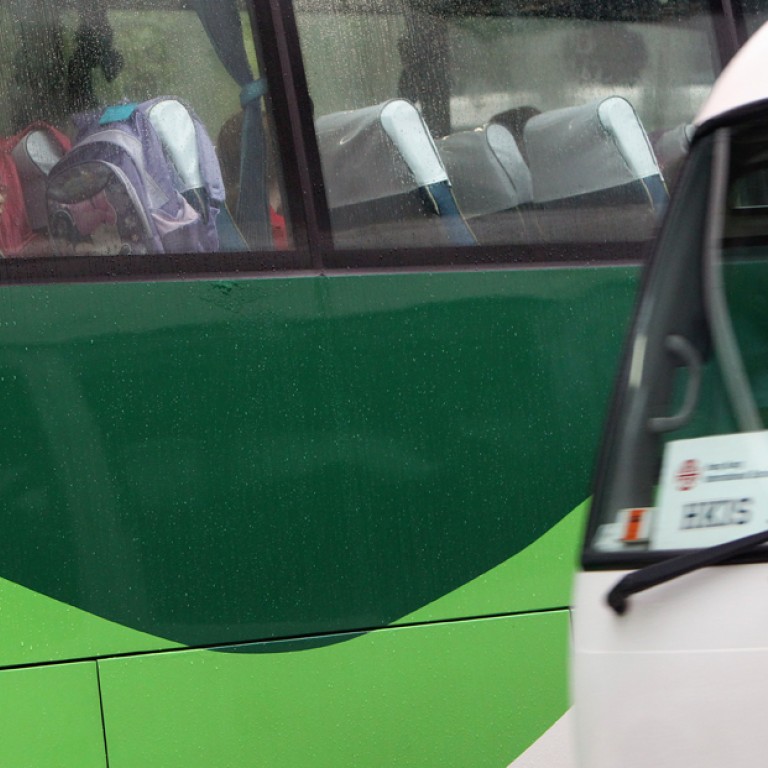
Shortage of school bus services as costs rise, survey finds
Fewer bus companies are willing to provide the service to schools as it's too expensive and tourist fares are more lucrative
S.K.H. St James' Primary School faced yet another uphill battle to secure a school bus service this year, and it was just one of many schools struggling to provide their pupils with a safe, convenient and affordable way to get to class, a survey has found.

These were findings from a survey by the Federation of Education Workers, which covered 230 schools. The study also found that the price of the school bus service rose 26 per cent this year, after last year's 11 per cent rise.
In 2011, S.K.H. St James' Primary put out tenders for the service, but the company that had been providing it for 20 years decided not to join the bidding.
The school managed to secure another provider eventually, and it was the only bidder for the tender, principal Cheung Yung-pong said.
He declined to disclose exactly how much the school was paying for the service this year, saying only that monthly tickets ranged from HK$550 to HK$1,250. "No one wants to take this business these days," said Cheung.
Federation of Education Workers vice-president Wong Wai-shing said the price increases could lead to underadmission at schools in remote areas, as parents tended to pick schools that were more easily accessible by public transport.
"They have to agree to the fee rise, or they might end up with no school bus service," he said.
A spokeswoman for Kwoon Chung Motors Company said it had to raise its prices because of higher fuel costs, insurance and maintenance. She said drivers had to be paid year round even though the company did not get fares for two months during the school holidays.
Leung Kong, chairman of the School Buses Operators Association, said non-franchised bus companies earned much less since schools had switched to a whole-day system, meaning buses were needed only twice a day, not four times.
"Many companies have started serving tourists," he said. "At the end of the day, you can't make ends meet just by doing the school runs."
The tourism boom has seen a rise in the demand for non-franchised buses, the numbers of which have fallen by 14 per cent since the government stopped issuing new licences in 2005.
Eight years ago, there were more than 4,200 non-franchised buses on the road; last year there were about 3,600. This has led to speculation on their licences, which now cost up to HK$3 million.
Leung said many school bus companies had sold their licences for a tidy sum.
He said the best solution would be for the government or schools to subsidise the service providers.
"Schools can apply to run their own bus services, but they won't because the costs are too high," he said.

